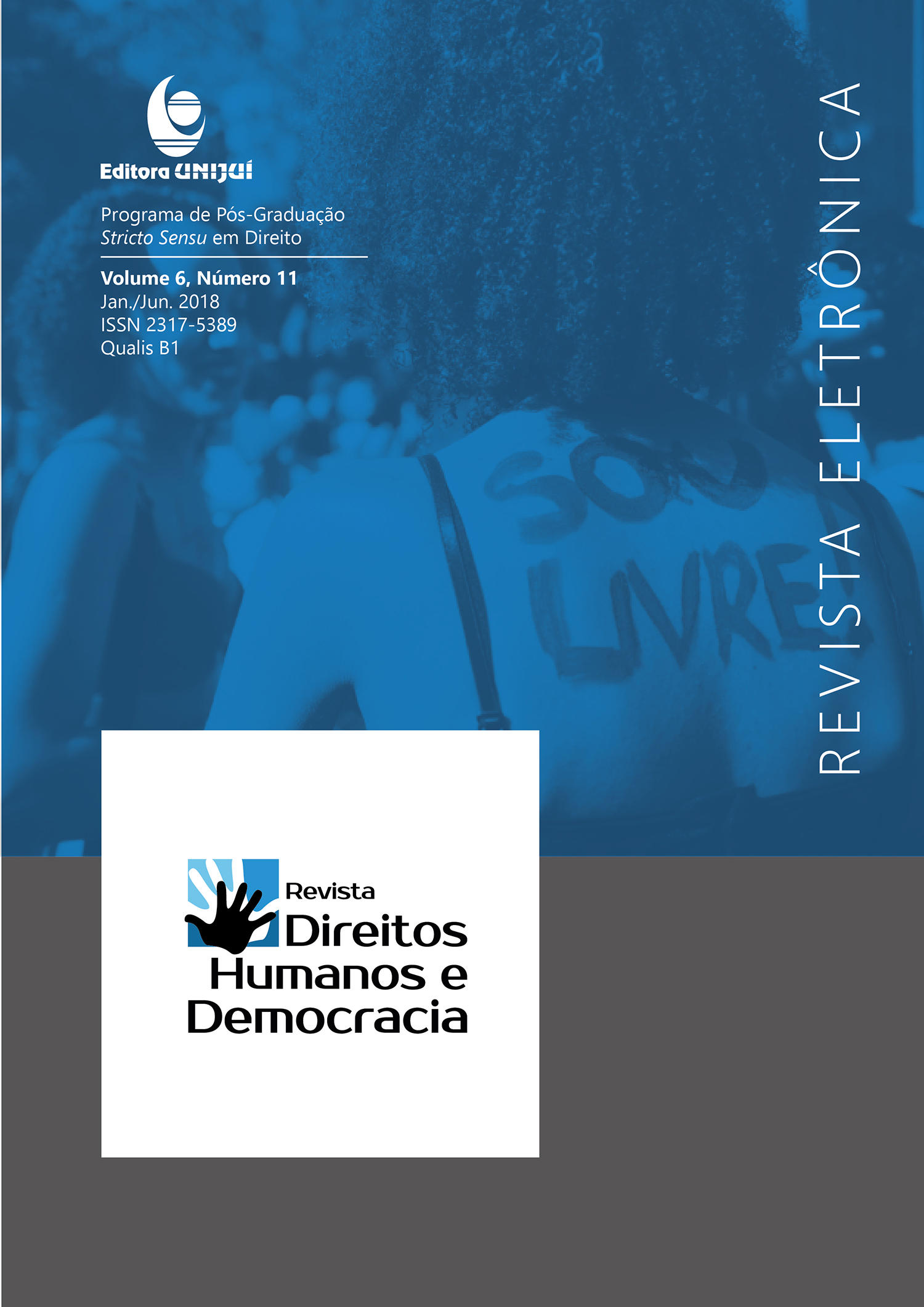ENTRE A JUSTICIALIZAÇÃO PRIVADA E O ESTADO DE EXCEÇÃO: A (RE)CRIAÇÃO ANÔMICA DA SOCIEDADE
DOI:
https://doi.org/10.21527/2317-5389.2018.11.56-96Resumo
O estudo aqui apresentado faz uma análise sobre a violência na atual conjuntura, mormente no que se refere à justiça privada – linchamentos – como meio de resolução imediata de conflitos, bem como a forma como o Estado, através de seu Soberano, se impõe diante da atual crise social. Traz à tona a questão sobre a tensão existente entre a obediência e a transgressão da norma estabelecida e, para tanto, parte do exemplo privilegiado de Antígona para abordar o conflito entre o direito positivo e direito natural. Segue expondo os casos e as explicações acerca do fenômeno social da justicialização privada e, na sequencia, exibe a forma com que o Estado também tem feito justiça com as próprias mãos, através deste novo paradigma de governo que se instala sob a forma de exceção. Para melhor compreensão do tema é feita uma análise utilizando-se das obras de Giorgio Agamben e Gilberto Bercovici, as quais sugerem a possibilidade de um estado de exceção permanente diante das condutas arbitrárias de governo.
Downloads
Publicado
Como Citar
Edição
Seção
Licença
Ao publicar na Revista Direitos Humanos e Democracia, os autores concordam com os seguintes termos:
Os trabalhos seguem a licença Creative Commons Atribuição 4.0 Internacional (CC BY 4.0), que permite:
Compartilhar — copiar e redistribuir o material em qualquer meio ou formato;
Adaptar — remixar, transformar e criar a partir do material para qualquer fim, inclusive comercial.
Essas permissões são irrevogáveis, desde que respeitados os seguintes termos:
Atribuição — os autores devem ser devidamente creditados, com link para a licença e indicação de eventuais alterações realizadas.
Sem restrições adicionais — não podem ser aplicadas condições legais ou tecnológicas que restrinjam o uso permitido pela licença.
Avisos:
A licença não se aplica a elementos em domínio público ou cobertos por exceções legais.
A licença não garante todos os direitos necessários para usos específicos (ex.: direitos de imagem, privacidade ou morais).
A revista não se responsabiliza pelas opiniões expressas nos artigos, que são de exclusiva responsabilidade dos autores. O Editor, com o apoio do Comitê Editorial, reserva-se o direito de sugerir ou solicitar modificações quando necessário.
Somente serão aceitos artigos científicos originais, com resultados de pesquisas de interesse que não tenham sido publicados nem submetidos simultaneamente a outro periódico com o mesmo objetivo.
A menção a marcas comerciais ou produtos específicos destina-se apenas à identificação, sem qualquer vínculo promocional por parte dos autores ou da revista.
Contrato de Licença: Os autores mantém os direitos autorais sobre seu artigo, e concedem a Revista Direitos Humanos e Democracia o direito de primeira publicação.













